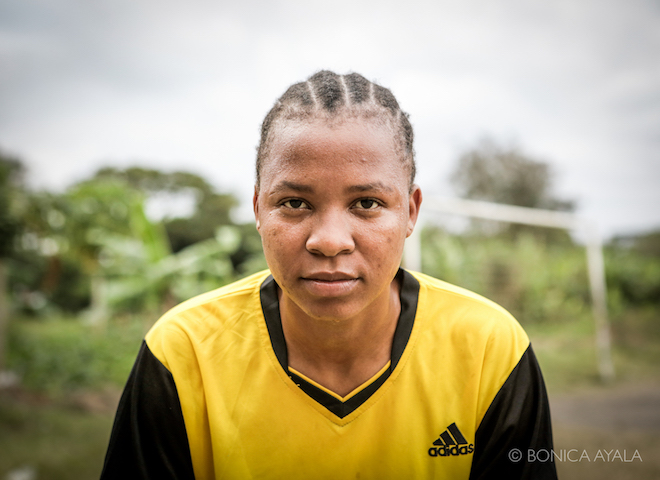
I recently went on a cinematic journey that took me from women’s soccer in Zanzibar to a failed stadium-and-entertainment complex in Buenos Aires.
My travel agency, so to speak, was the Football Scholars Forum. On February 23 it held an online discussion of two low-budget, high-return documentary films. (A recording of the event can be found here. Audio quality improves significantly around the 20 minute mark.)
“New Generation Queens” by Megan Shutzer tells the story of a Zanzibari women’s team. The documentary follows the compelling lives of younger and older women to cast light on the culture of the women’s game on the East African island, which is 99% Muslim. The 50-minute film alternates interviews with passionate players and determined organizers with footage of training sessions on rudimentary pitches. As an historian, I especially liked the remarkable 1988 footage of a Swedish team playing against a local team: the first official women’s game in Zanzibar! After the set up, the film’s main story line becomes the New Generation Queens’ journey to mainland Tanzania for a major tournament. Only the younger players participate in the Under-15 event, an important recruiting venue for the Tanzanian national side. Shaba “Messi” has a lot riding on this competition.
“Ciudad Deportiva—El Documental,” co-produced by Alex Galarza and four Argentine journalists, tells the story of Boca Juniors’ failed attempt in the 1960s and early 1970s to build a 150,000-seat stadium and recreational complex. The 45-minute documentary combines rich archival footage with still photography and interviews, to reconstruct the history of a monumental sports and urban development project. Focusing on Boca Juniors, one of the most popular clubs in the fútbol-mad city (cf. River Plate, Velez, San Lorenzo, among others), and their influential, albeit dodgy president, Alberto Armando, “Ciudad Deportiva” uncovers multiple and complex links between soccer, politics, and urban history in the mega-city of Buenos Aires.
The two enterprising film makers bring impressive academic credentials to their projects. Galarza has a PhD in Latin American History from Michigan State (where I had the distinct pleasure of serving on his doctoral committee), and is currently a Postdoctoral Fellow at Haverford College. Shutzer has a BA from Harvard, did graduate work at Stanford, is fluent in kiSwahili and works in development.
At the Football Scholars Forum, the pair explained the genealogy of their (first) films, narrative choices and production techniques, as well as approaches to film distribution. Notably, Galarza and Shutzer emphasized their commitment to collaborating closely with local people in the filmmaking process. Both spent years doing fieldwork in Buenos Aires and Zanzibar: nurturing relationships, listening to their interlocutors, building trust, and, of course, playing soccer.
The numerous differences between the films make them intriguingly complementary. “Ciudad” is a historical tale told in Spanish by men (though a female narrator) linked to one of the world’s most famous football clubs. “New Generation Queens” is a contemporary story that centers Swahili women’s voices and experiences located at the distant periphery of the global game.
I highly recommend both films. In a glut of English-language soccer media content, these documentaries stand out for their originality and production value. I also intend to use them in my classroom to challenge stereotypes about Muslim African women and to raise questions about the politics of stadium development, past and present.
Categories